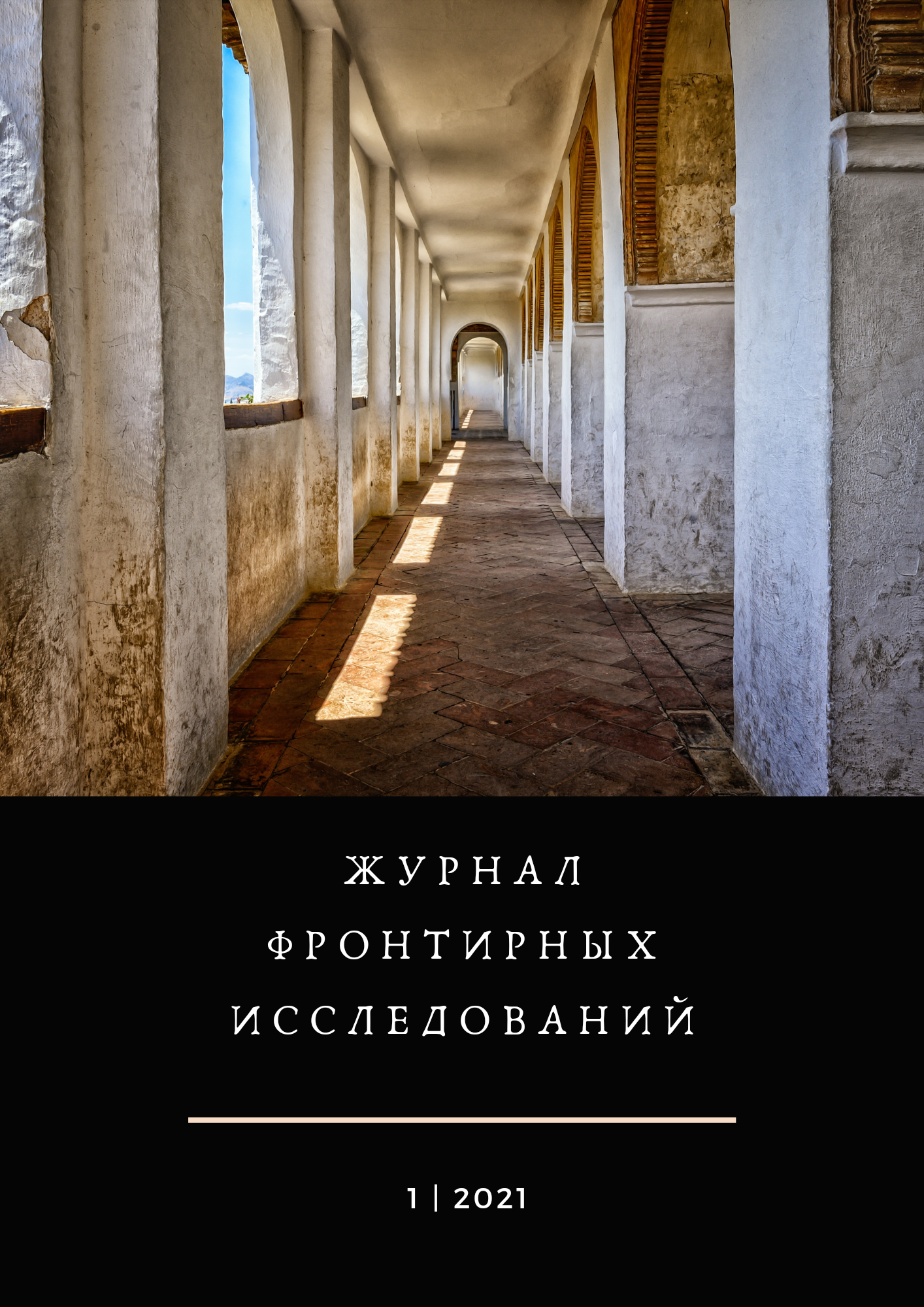Abstract
The Museum of Yekaterinburg History, with the support of the Presidential Grants Fund, launched an educational project “You Can’t Keep Silence: Practices in Memory of the Era of Political Repression” in 2019. It aimed at finding ways to form a balanced perception of the topic of political repression among contemporary schoolchildren and first-year students (14-19 years old).
The idea of the authors of the project was to find ways to translate dry numbers and facts of documents into a “human” dimension, to emotionally involve the participants and encourage them not only to learn more about the topic, but also to feel it, to shift the perception of the topic from detached to “personal” and “not indifferent”.
The organizers asked participants to go through a number of stages to achieve this result. The measurement of the effectiveness of the selected memorization practices and general work on the project was carried out using a specially designed monitoring program. It included filling out “entry” and “exit” questionnaires at the beginning and at the end of the project, as well as questionnaires and short group interviews after participating in an immersive performance and acquaintance with the real archival investigation.
The results of the project allows us to assert that the work of adolescents in the project contributed to a deeper assimilation of humanistic values. This led to a rethinking of the relationship between the state, power and citizen, the strengthening of the separation of the state and power and the formation of reflective patriotism as the most important conditions for successful work with the traumatic, uncomfortable past of our country.
References
"The craving for Stalin is the moral stupidity of society. Director of the Levada Center on the mood of Russians (photo). (2020, January 8). Retrieved from Fontanka-ru website: https://www.fontanka.ru/2020/01/08/020/ (In Russian).
"We wish we had Comrade Stalin now. Why Russians Refuse to Believe in Repression and Are Ready to Forgive Soviet Power. (2020, June 10). Retrieved from https://lenta.ru/articles/2020/06/10/istpam/ (In Russian).
An immersive performance-excursion "Case #39496" at the Memorial to the victims of political repressions (12 kilometer of the Moscow road). (n. d.). Retrieved from Yekaterinburg History Museum – m-i-e.ru website: https://m-i-e.ru/delo39496 (In Russian).
Bogumił, Z. (2012). Stone, Cross and Mask: Searching for Language of Commemoration of the Gulag in the Russian Federation. Polish Sociological Review, 177(1), 71–90.
Bogumił, Z., & Romanov, R. (2018). "The Wall of Sorrow, the Gulag Museum, and other practices of memorializing victims of Soviet repression. Interview by Zuzanna Bogumil with Roman Romanov. Laboratorium: Russian Review of Social Research, 10(2), 157–163. (In Russian).
Dorman, V. (2010). From Solovki to Butovo: The Russian Orthodox Church and the Memory of Soviet Repression in Post-Soviet Russia. Laboratorium: Russian Review of Social Research, (2), 327–347. (In Russian).
Doronina, S. G. (2020). The Social Structure of the Past: Individual and Collective Memory. Tempus et Memoria, 1(1–2), 36–43. (In Russian).
Epple, N. (2020). An Inconvenient Past: Memories of State Crimes in Russia and Other Countries. Moscow: New Literary Review. (In Russian).
Etkind, A. (2016). Crooked Grief: Memory of the Unburied. Moscow: New Literary Review. (In Russian).
Feretti, M. (2002). Memory Disorder: Russia and Stalinism (interview recorded by Irina Chechel, 20 11 2002). Retrieved from Mikhail Gefter website: http://gefter.ru/archive/24676 (In Russian).
Hirsch, M. (2016a). "There is a difference between post-memory and the mobilization of patriotic feelings" | History Lessons Twentieth Century. Retrieved from History Lessons website: https://urokiistorii.ru/article/53499 (In Russian).
Hirsch, M. (2016b). What is post-memory | History Lessons of the Twentieth Century. Retrieved from History Lessons. website: https://urokiistorii.ru/article/53287 (In Russian).
Itinerary of Memory. (n. d.). Retrieved from Yekaterinburg History Museum – m-i-e.ru website: https://m-i-e.ru/marshrutpamyaty (In Russian).
Ivanova, N. A. (2013). Application of the method of free associations in empirical sociological experiments. Vestnik (Herald) of St. Petersburg University. Series 12. Psychology. Sociology. Pedagogy, (3), 116–122. (In Russian).
Kunitsina, V. (2011). K. Izard's Differential Emotion Scale (DES) methodology. Adaptation by A.B. Leonova. In А. A. A. Bodalev (Ed.), Psychology of Communication. Encyclopedic Dictionary. Moscow: Cogito Center. (In Russian). (In Russian).
Lebedeva, O. (2018). One Past, Two Memories: A Comparative Analysis of the Museum of the History of the White Sea-Baltic Waterway and the Museum of the Solovetsky Special Purpose Camp. Laboratorium: Russian Review of Social Research, (2), 134–148. (In Russian).
Mechanic, A., & Skorobogaty, P. (2019). The world needs a "new utopia." Retrieved from The Expert-online website: https://expert.ru/expert/2019/50/mir-nuzhdaetsya-v-novoj-utopii/ (In Russian).
Mironova, N. I. (2011). Associative Experiment: Methods of Data Analysis and Analysis Based on the Universal Schema. Psycholinguistic Issues, 14(2), 108–119. (In Russian).
Petrov, N. (2012). Was Stalin a criminal? In А. I. Miller & M. Lipman (eds.), Historical politics in the twenty-first century (pp. 396–418). Moscow: New Literary Review.
Silence cannot be told. (2020). Retrieved from 12memorial.ru website: http://12memorial.ru/molchat-rasskazyvat (In Russian).
Sneagon, T. (2019). Dying in the Soviet Gulag for the Future Glory of Mother Russia? Making «Patriotic» Sense of the Gulag in Present-Day Russia. In N. Bernsand & B. Törnquist-Plewa, Cultural and Political Imaginaries in Putin’s Russia (pp. 105–140). Amsterdam: Brill.
Snegovaya, M. (2016). Blind spots of love for the homeland. Retrieved from Vedomosti website: https://www.vedomosti.ru/opinion/articles/2016/07/11/648684-slepie-pyatna (In Russian).
Syrov, V. N. (2020). Ways and Means of Historical Reconciliation: The Professional Community and the Problem of Conflicting Narratives about the Past. Tempus et Memoria, 1(1–2), 44–52. (In Russian).
Ushakin, S. (2009). "Do we have this pain to breathe?" On Trauma, Memory and Communities. In S. Ushakin & E. Trubina (Ed.), Trauma: Points (pp. 5–41). Moscow: New Literary Review. (In Russian).
Zevako, Y. V. (2019). Russian Identity, the Politics of Memory, and the "Era of Political Repression": Toward a Statement of the Problem. General History Questions, (22). doi: 10.26170/vvi19-01-19. (In Russian).

This work is licensed under a Creative Commons Attribution 4.0 International License.

